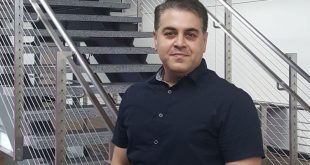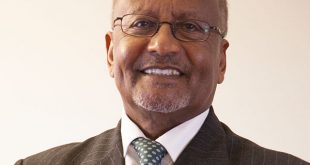 Max Hilaire, Ph.D. is professor and chair of Morgan’s Political Science Department. A summa cum laude graduate of MSU with a B.A. in political science, Class of 1979, he also earned an M.A., M.Phil. and Ph.D. at Columbia University. Dr. Hilaire’s expertise is in public international law; international human rights and international humanitarian law; United Nations law and U.S. foreign relations law. A two-time Fulbright Scholar, in Nigeria and the Czech Republic, he has been a keynote speaker for a number of overseas organizations and has lectured at more than 50 universities in Africa, Europe, the Caribbean and Latin America, Canada and the United States.
Max Hilaire, Ph.D. is professor and chair of Morgan’s Political Science Department. A summa cum laude graduate of MSU with a B.A. in political science, Class of 1979, he also earned an M.A., M.Phil. and Ph.D. at Columbia University. Dr. Hilaire’s expertise is in public international law; international human rights and international humanitarian law; United Nations law and U.S. foreign relations law. A two-time Fulbright Scholar, in Nigeria and the Czech Republic, he has been a keynote speaker for a number of overseas organizations and has lectured at more than 50 universities in Africa, Europe, the Caribbean and Latin America, Canada and the United States.
Dr. Hilaire’s fourth book, “Waging Peace,” examines the actions — and inactions — of the United Nations Security Council over the past seven decades, in its central role in the UN’s efforts to maintain or restore international peace and security around the world.
We spoke with him on campus recently about his latest publication.
Q: What motivated you to choose this topic?
A: It’s an issue I’ve been preoccupied with ever since graduate school. Having had experience working within the United Nations system, I developed an interest in the role of the UN in responding to conflicts around the globe. Previously, I wrote a book on the Security Council and how it applies United Nations law in addressing some of the conflicts that pose a threat to international peace and security. In doing the research for that book, I realized that many of the conflicts that were springing up around the world were conflicts that were not quite threats to international peace and security but were really transnational conflicts, because they involved non-state actors, individuals, terrorist groups, corporations and others that were engaged in the war enterprise. And the international community did not have the infrastructure or the proper legal framework to address some of these emerging threats. So I decided to delve into it a little deeper.
Q: Can you explain the difference between transnational and international conflicts?
A: …Even though the conflict may appear to be an international conflict or a conflict between two states, within the two-state conflict you may have other conflicts that are taking place. For example, if we take Iraq or Afghanistan, there’s NATO against the Taliban, there’s the U.S. against Al Qaida, there’s the Taliban against the Northern Alliance, the U.S. against ISIS, Iraqi troops versus ISIS, Kurdish Army versus ISIS, Syrian rebels against the Syrian Army. So it’s a multiplicity of conflicts, what one would refer to as a hybrid conflict: they involve more than just two state parties….
The other thing I noticed is that many of these conflicts do not have a military solution. Sometimes military intervention aggravates the situation instead of resolving it. The (basis) of these conflicts (is) political, social, economic or religious…. The UN framework was designed to respond to conflicts like World Wars I and II, not the kinds of conflicts we see playing out in the world today.
Q: On the cover of your book, you describe the UN Security Council as “a uniquely idealistic experiment in creating an institution to safeguard peace and security globally.” In what ways has the Security Council met and fallen short of those ideals?
A: The Security Council comprised the great powers after WWII (China, France, Russia, the U.K. and the U.S.)…. The mere fact that you had a forum in which these adversaries could speak and agree on some issues, I think mitigated conflicts that outside of the United Nations framework could have easily happened…. But the UN basically assumed that you could always get a consensus from these five major powers, which never quite occurred…. The UN, when you look at it, is part idealist, part realist in its formation.
Q: In your book, do you make any recommendations to improve the UN’s peacemaking or peace restoration efforts?
A: Yes, I do…. The old framework of expecting the major powers to respond to every regional conflict is very costly (and) can (become) bogged down in domestic politics, whether it’s in the U.S. (Congress), in the British Parliament or the French National Assembly. A quick response to an emergency situation in Africa or Latin America or the Middle East is not always forthcoming if you go the Security Council route. So building partnerships between the Security Council and regional organizations is a preferred model for addressing many of these regional conflicts.
Q: Do you have another book in the works?
A: I’m actually working on a book on Obama’s foreign policy, making comparisons between Obama and Bush to show how a change in administration does not necessarily bring about a dramatic shift in American foreign policy. Instead, I argue there is more continuity than change…. And at the core of my argument is that there’s more of a change in style than in substance in American foreign policy. I’m also revising a manuscript I started researching when I was a Fulbright Scholar and a State Department speaker in Africa, which examines how the international community responds to African conflicts and whether there is a double standard. I am looking at the conflicts in Rwanda, Sierra Leone, Somalia, Cote D’Ivoire, Democratic Republic of Congo, Mali, Burkina Faso-Mali, Nigeria-Cameroon, Ethiopia-Eritrea, Somalia, Angola, Liberia, Mozambique and Namibia, to name a few.
 Morgan State University Newsroom Morgan State University
Morgan State University Newsroom Morgan State University




